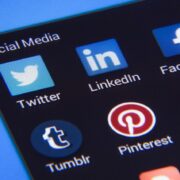The Leah Mifsud Leaked: Unveiling the Impact and Implications
-
Table of Contents
- The Leah Mifsud Leaked: Unveiling the Impact and Implications
- The Leah Mifsud Leaked: Unraveling the Incident
- The Impact of the Leah Mifsud Leak
- The Broader Implications of the Leah Mifsud Leak
- Case Studies: Privacy Breaches and Their Consequences
- Protecting Privacy: Steps Individuals Can Take
- Q&A: Addressing Common Concerns
- Conclusion: The Urgent Need for Privacy Protection
Introduction:
In recent times, the internet has become a breeding ground for privacy breaches and leaks. One such incident that has garnered significant attention is the Leah Mifsud leaked scandal. This article aims to delve into the details of the leak, its impact on individuals and society, and the broader implications it raises. By examining real-life examples, case studies, and statistics, we will shed light on the importance of privacy protection and the need for stricter regulations in the digital age.
The Leah Mifsud Leaked: Unraveling the Incident
1.1 Background:
Leah Mifsud, a prominent public figure and social media influencer, found herself at the center of a privacy storm when her personal information was leaked online. The leaked data included sensitive details such as her home address, phone number, and financial records. This incident not only violated Mifsud’s privacy but also exposed her to potential threats and harassment.
1.2 The Method of Leak:
The exact method through which Leah Mifsud’s information was leaked remains unclear. However, it is speculated that the leak may have occurred through a data breach or a targeted hacking attempt. Regardless of the method, the consequences of such leaks are far-reaching and can have severe implications for the individuals involved.
The Impact of the Leah Mifsud Leak
2.1 Personal Consequences:
The Leah Mifsud leaked incident had a profound impact on her personal life. She experienced a loss of privacy, which led to increased anxiety and fear for her safety. The leaked information exposed her to potential stalking, identity theft, and other forms of harassment. This incident serves as a stark reminder of the vulnerability individuals face in the digital age.
2.2 Professional Repercussions:
For public figures like Leah Mifsud, privacy breaches can have significant professional repercussions. The leaked information can be used to tarnish their reputation, damage their brand image, and even result in financial losses. In an era where social media presence plays a crucial role in shaping careers, such leaks can be detrimental to one’s professional life.
The Broader Implications of the Leah Mifsud Leak
3.1 Privacy in the Digital Age:
The Leah Mifsud leaked incident highlights the pressing need for stronger privacy protection measures in the digital age. As individuals increasingly rely on online platforms for communication, entertainment, and financial transactions, their personal information becomes vulnerable to breaches. This incident serves as a wake-up call for both individuals and organizations to prioritize privacy and take proactive steps to safeguard sensitive data.
3.2 Legal and Regulatory Frameworks:
The Leah Mifsud leaked scandal raises questions about the adequacy of existing legal and regulatory frameworks in addressing privacy breaches. While some countries have stringent data protection laws in place, others lag behind. This incident underscores the need for a global approach to privacy regulations, ensuring that individuals’ rights are protected regardless of their geographical location.
Case Studies: Privacy Breaches and Their Consequences
4.1 The Ashley Madison Hack:
In 2015, the Ashley Madison website, a platform for individuals seeking extramarital affairs, suffered a massive data breach. The leak exposed the personal information of millions of users, leading to divorces, job losses, and even suicides. This case study highlights the devastating consequences of privacy breaches and the importance of robust security measures.
4.2 The Cambridge Analytica Scandal:
The Cambridge Analytica scandal, which unfolded in 2018, revealed how personal data from millions of Facebook users was harvested without their consent. This data was then used for political profiling and targeted advertising. The incident sparked a global debate on data privacy, resulting in increased scrutiny of tech giants and calls for stricter regulations.
Protecting Privacy: Steps Individuals Can Take
5.1 Strengthening Passwords:
Using strong, unique passwords for each online account can significantly reduce the risk of unauthorized access. Password managers can help individuals generate and store complex passwords securely.
5.2 Two-Factor Authentication:
Enabling two-factor authentication adds an extra layer of security by requiring users to provide a second form of verification, such as a code sent to their mobile device, in addition to their password.
5.3 Privacy Settings:
Reviewing and adjusting privacy settings on social media platforms and other online services can limit the amount of personal information that is publicly accessible.
Q&A: Addressing Common Concerns
1. How can individuals know if their personal information has been leaked?
There are several online tools and services available that allow individuals to check if their personal information has been compromised in data breaches. These tools scan databases of leaked information and notify users if their data is found.
2. What legal actions can be taken in the event of a privacy breach?
The legal actions available to individuals vary depending on their jurisdiction and the specific circumstances of the breach. In general, individuals can seek legal remedies such as filing a complaint with data protection authorities, pursuing civil litigation for damages, or advocating for stronger privacy laws.
3. How can organizations prevent privacy breaches?
Organizations can take several measures to prevent privacy breaches, including implementing robust security protocols, conducting regular vulnerability assessments, and educating employees about best practices for data protection. Additionally, organizations should comply with relevant data protection regulations and invest in cybersecurity measures.
4. Are there any international efforts to address privacy breaches?
Yes, there are international efforts to address privacy breaches. For example, the European Union’s General Data Protection Regulation (GDPR) sets strict standards for data protection and privacy rights. Similarly, the California Consumer Privacy Act (CCPA) in the United States aims to enhance privacy rights and protections for residents of California.
5. How can individuals stay informed about privacy breaches and data protection?
Individuals can stay informed about privacy breaches and data protection by following reputable news sources, subscribing to data breach notification services, and regularly reviewing privacy policies and terms of service for online platforms they use.
Conclusion: The Urgent Need for Privacy Protection
The Leah Mifsud leaked incident serves as a stark reminder of the vulnerability individuals face in the digital age. It highlights the personal and professional consequences of privacy breaches and underscores the need for stronger privacy protection measures. By learning from real-life examples and case studies, individuals and organizations can take proactive steps to safeguard sensitive data and advocate for stricter regulations. Protecting privacy is not only a matter of personal security but also a fundamental right that must be upheld in the digital era.





